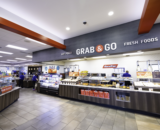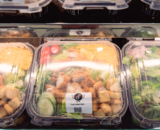Nearly 50 members of the U.S. Senate urged U.S. Agriculture Secretary Thomas Vilsack to revise the proposed rule regarding Supplemental Nutrition Assistance Program (SNAP) benefits arguing that as currently written it will limit food access for more than 45 million families, seniors and children.
The Senators are pushing for revisions to the provisions that would prohibit retailers from redeeming SNAP benefits if 15 percent or more of their total food sales are for items cooked or heated on-site and the requirement that SNAP retailers stock and offer for sale a larger quantity of "staple food" items while substantially narrowing the definition of "staple food. NATSO has advocated for both of these changes.
In a letter dated August 2, the Senators said that the proposed rule will result in the removal of a large number of small format retailers and small businesses from SNAP, which would hinder its ability to mitigate food access challenges as Congress intended.
More than 100,000 small format retailers are authorized SNAP retailers, according to USDA data. The cost and burden of complying with the proposed rule, however, could force these retailers to discontinue participating in SNAP and further reduce access to healthy food for SNAP participants.
Many SNAP recipients in communities with limited access to large grocery stores rely upon small format stores, including neighborhood stores, convenience stores or truckstops and travel plazas, for SNAP purchases.
The 2014 Farm Bill directed USDA to make changes to stocking requirements for staple and perishable food items for retailers participating in SNAP as part of an effort to improve the program, ensure it continues to assist vulnerable populations in meeting their nutritional needs, and to encourage stores to increase their variety and quantity of nutritious food items available to SNAP beneficiaries.
In making these changes, Congress specifically acknowledged the importance of preserving food access and deliberately chose not to make modifications related to percentages of retail sales of hot foods.
The proposed SNAP rule, however, would prohibit retailers from redeeming SNAP benefits if 15 percent or more of their total food sales are for items cooked or heated on-site. Many convenience stores operated by truckstop and travel plazas are located at the same site as quick-serve and/or sit-down restaurants, and this would cause these locations to exceed the proposed 15 percent maximum.
Furthermore, the proposal would require SNAP retailers to stock and offer for sale a larger quantity of "staple food" items while substantially narrowing the definition of "staple food." This would require small format retailers, including NATSO members wishing to redeem SNAP benefits, to offer for sale a number of items that they would otherwise not be inclined to stock and that their customers are not inclined to buy.
In their letter, the Senate Members urge Secretary Vilsack to “seriously consider the combined impact of the requirements in this proposed rule and revise the rule to better balance the importance of ensuring the availability of nutritious food and providing adequate access for SNAP recipients in all parts of the country.”
In comments filed May 18 with the Department of Agriculture, NATSO said the agency has gone too far with its proposal and that if finalized it would effectively prohibit smaller format retailers from participating in SNAP, and thereby harm the SNAP beneficiaries that it is trying to help.
Earlier this year, Love’s Travel Stops & Country Stores Vice President of Human Resources and Government Affairs Carl Martincich testified on behalf of the truckstop and travel plaza industry before Congress on the important role the industry plays in the SNAP program, especially in areas where there are few other locations for SNAP beneficiaries to purchase food.
“As written, the proposal would effectively ban the truckstop and travel plaza industry from continuing to redeem SNAP benefits, harming not only those businesses but more importantly the customers who have come to rely on them to buy food for their families,” Martincich testified. He stated that “USDA has gone too far with this proposal. If finalized, it would effectively prohibit our industry from participating in SNAP, and thereby harm the SNAP beneficiaries the agency is charged with helping.”
Martincich also testified on how the proposed rule would prohibit retailers from redeeming SNAP benefits if 15 percent or more of their total food sales are for items cooked or heated on-site. Many convenience stores operated by truckstop and travel plazas are located at the same site as quick-serve and/or sit-down restaurants.
The USDA is expected to finalize the rule later this year.
Subscribe to Updates
NATSO provides a breadth of information created to strengthen travel plazas’ ability to meet the needs of the travelling public in an age of disruption. This includes knowledge filled blog posts, articles and publications. If you would like to receive a digest of blog post and articles directly in your inbox, please provide your name, email and the frequency of the updates you want to receive the email digest.

